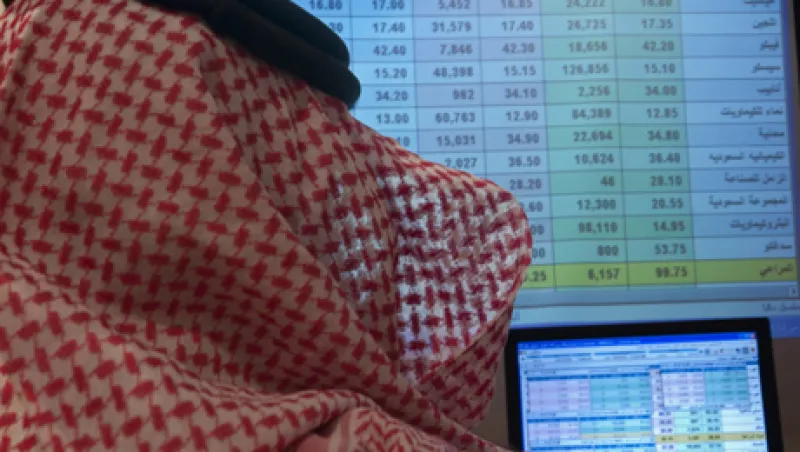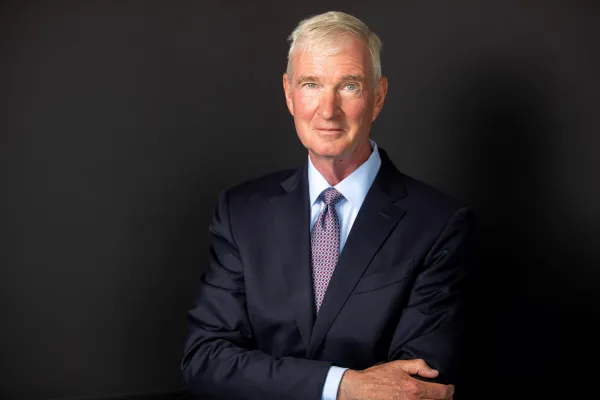As Saudi Arabian equities soared to new highs in early 2012, tongues quickly began wagging about an imminent opening up of the Tadawul, the official stock exchange of Saudi Arabia, to foreign investment. As quickly as the exchange rallied, however, it floundered.
At the end of June, the Tadawul — a heavyweight Gulf bourse that during the first quarter of 2012 had seen volumes surge 20 percent compared to 3 percent elsewhere in the Gulf Cooperation Council countries — saw its All Share index plunge to a 2012 low of 6600 from 7930.58 on April 3. As of the beginning of July, the index has continued to languish, standing at just over 6800 at the close of business on July 8.
With 152 companies listed, the Tadawul is one of the biggest exchanges in the Gulf. And in terms of volume, it’s the largest in the region.
The Saudi bulls are quick to point out that markets dominated by retail day traders (who account for 90 percent of activity on the Saudi bourse) are often subject to wild peaks and troughs. A run of impressive company results from local giants such as Saudi Basic Industries Corp. undoubtedly prompted the surge, while profit-taking in the wake of that rally could go some way to account for the slump.
But ongoing speculation on whether the Tadawul will open its books to foreign traders and funds is another element behind the 2012 rally. Saudi is one of the most restrictive emerging markets in the world, unique in its refusal to allow any foreign capital in despite remarkable economic growth fueled by the world’s largest oil reserves and a construction boom. When rumors start floating around that the government will make its move, shares rise; at the inevitable anticlimax, they fall.
Reform in Saudi Arabia is not only rare but immensely difficult to predict, meaning that the market is as blind as it is volatile. When you have thousands of day traders — many of whom have their life savings staked in Saudi companies — sitting around waiting for a snippet of news, such as a marginally favorable company result or a vague government decree, it is hard to imagine a steady, transparent market. That said, some analysts remain upbeat.
“It looks like a done deal, but the time line is still unclear. There’s speculation that it will happen in the second half of 2012,” said Akber Naqvi, executive director and head of asset management at Al Masah Capital. “Given the nature of regional markets, even though official posturing is encouraging, we will stay cautious on the issue of time lines.”
Others point to specific events, such as last year’s surprise appointment of Fahad Al Mubarak as governor of the Saudi Arabian Monetary Agency. Al Mubarak had previously held senior positions at Tadawul and Morgan Stanley, and analysts at London-based Capital Economics speculate that his appointment may signal a bigger role for SAMA in the running of Saudi Arabia’s Capital Markets Authority, which could, in turn, lead to foreign participation in the market.
In April, CMA chairman Abdul Rahman Al Tuwaijri said that Saudi Arabia would open its stock market to foreigners “in a gradual manner.” His saying so means that it is likely — the question now is how open they will be.
But the government’s opaque decision-making process suggests that nobody really knows what the Saudi authorities will do next. The country’s new mortgage law is a case in point: The law, anticipated for more than a decade, was quietly announced by the state press on Monday afternoon last week. Any change to Saudi’s capital markets will likely get similar treatment.
The opening of the Tadawul to foreign investment would have very real repercussions on the millions of Saudis that trade in it daily. As last year’s limited protests in the country — and King Abdullah’s $130 billion of stimulus designed to mollify the protesters — shows, the post–Arab Spring landscape has the government increasingly paranoid about upsetting the country’s population of about 27 million.
“There is a lot of influential wealth parked in the exchange, and the Tadawul can be a very important economic barometer. Given the sensitivities, giving up control to foreign market forces, no matter how sophisticated, is a tricky proposition,” Naqvi said.
Sébastien Hénin, portfolio manager at the National Investor, an investment research group in Abu Dhabi, said that a specific flash point in this regard could be in dealing with IPOs, which have been used as a way to redistribute wealth to the wider Saudi population and have given Saudi investors ownership in many of the country’s success stories.
“IPOs were very popular during the bull market, and stocks from governmental companies were offered to retail investors with a very significant discount. The potential discontent of domestic investors due to the arrival of foreigners could be the major concern for authorities,” Hénin said.
“The authorities should promote the arrival of foreign investors by pointing out that they will help market efficiency and reduce market volatility. They could even ban foreign investors from IPOs to secure wide consensus.”
Hénin points out that the inclusion of the Tadawul in emerging-markets indexes, such as the MSCI, could bring in more foreign capital. That said, the sticking points that have kept Qatar and the United Arab Emirates out of the MSCI Emerging Markets Index so far (both have been turned down by MSCI twice) — such as strict rules on foreign ownership — would also be a hurdle for the protectionist Saudis.
Meanwhile, Saud Masud, CEO at SM Advisory Group and a former analyst at Rasmala, urges a wait-and-see attitude. Saudi Arabia may move slowly, but an opening of the Tadawul would in the long run benefit local investors and decrease volatility. By comparison, the Chinese market in the 1990s had a 26 percent standard deviation of monthly return; once it had opened up after 2002, it was just 8.2 percent. Brazil had a similar experience with volatility, with 25 percent in 1990s and 7.4 percent from 2000 to 2012, according to research by Saudi lender Al Rajhi Capital.
“I think Tadawul’s natural progression will allow for foreign ownership, albeit at a slower rate than what most investors would like. It’s cultural, it’s systematic, it’s developing a new comfort zone with outsider participation in capital markets that are still relatively nascent,” Masud said.






